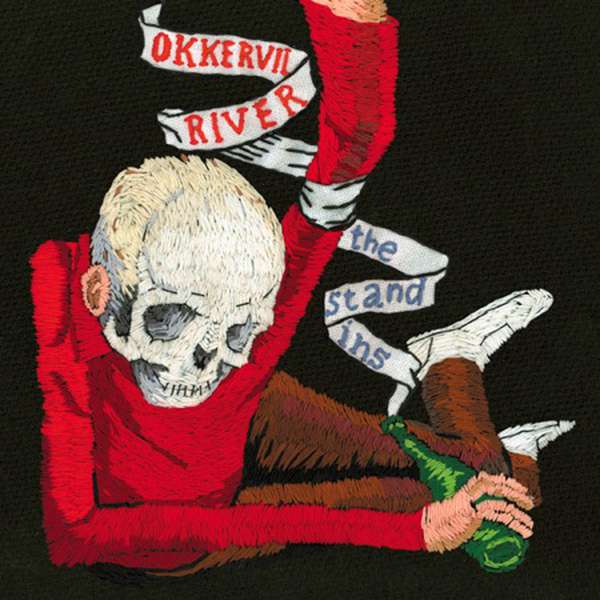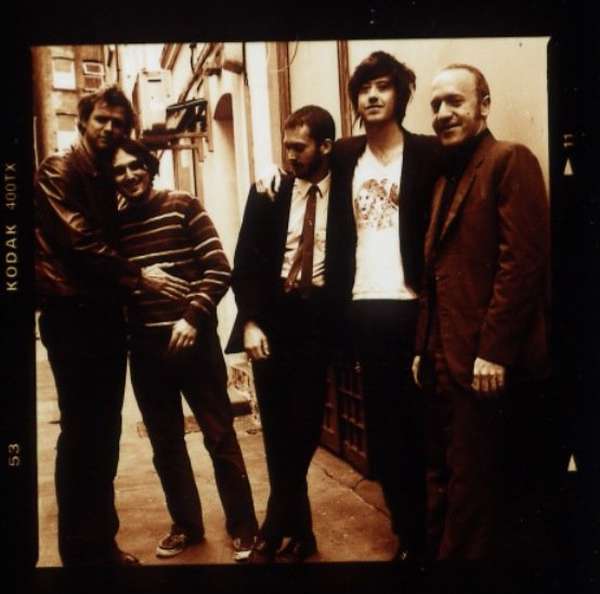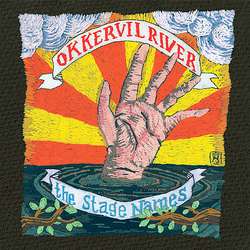"But there's this idea that nobody can tell you if something is good or not, you have to decide whether you think it's good. And nobody is more of an authority than anyone else."
The quote above is part of a response singer Will Sheff said when interviewed about his then forthcoming record The Stage Names. The interviewer had asked if he was worried about alienating those who had latched on to the melodrama put forth in the album's predecessor Black Sheep Boy.
Admittedly, it's been awhile since I've done a review. I've been thinking a lot about why that is. I read somewhere that the most important thing when taking the role of a critic is to remain objective. The writer phrased this as being disinterested with the subject. Paraphrasing, and likely misinterpreting, what he meant by that is a critic isn't writing to put forth their own thoughts and feelings about anything, they're writing to demonstrate an accurate depiction of what something is. The music I've always liked best resonates personally, and while I'm aware that my own connection might not be shared with another person, I can't disassociate from it. I don't know how to criticize anything. I just know how to tell you what I like.
"We all know that horrible stuff is down in the cellar, but up here we're going to have a party"
The quote above is from the same interview. Sheff is explaining what he wanted to achieve with the tone of The Stage Names.
The album I'm suppose to be talking about is The Stand Ins, the second half and follow up to the aforementioned The Stage Names. I get to the point when writing these things where I wonder why I am doing it. I used to think, and had been told, that I had an aptitude for understanding music. Lately, not so much. I've ran out of clever things to say about that though. The Stand Ins is a record dealing with the point where you don't have anything left to say but what's really happening.
The Stage Names used a cast of characters to tell the story of a band struggling with both professional and personal successes and failures, which worked on the level of pantomime for what was really being discussed. It was a party, and a good party. The indie rock, folk inspired, pop tunes, hinted on what was really being said, while keeping with clever and up beat tone of an insightful but fun record. Still, behind it all there was the looming sense of what really needed to be talked about.
Well expanding with the sound defined in The Stage Names, The Stand Ins delivers what was there but unsaid on the last album. It is an upfront a brutally honest depiction of a worry that the best days might already have come and gone. Okkervil River manage to unapologetically make use of their musical growth; taking their established emotionally driven low key indie folk and managing to imbue in it a rift inspired pop sensibility. The result is something that manages to straddle both an accessible and personal sound. It's enough to worry those fans who've grown to love the back catalog, and those songs plagued with the turmoil of growing pains and unrequited love. Okkervil River in both writing and music sound more mature than they ever have, which to many isn't the band they know. This isn't something singer Will Sheff is unaware of; on the discs opener the song closes with the lyrics "and every night finds us rocking and rolling on waves wild and white / Where we have lost our way but no ones going to say it outright" before breaking into a chorus of "la la la's."
For me Sheff has captured something entirely different, and though not as intense as previous albums, The Stand Ins is more interesting. It's an example of the things you're able to recall and comment when you've lived past a moment of your life.
I know too much to do the same band comparison and genre recognition again, and you're damn sure I've got a vested interest in what I'm listening to. That's why I think it's worth writing about. This review is a failure, I'm know, I know, but a well intended one.
I have this vaguely unpleasant sensation lately when listening to The Stand Ins that Okkervil River's Will Sheff (guitar and vocals) is peering in the windows at me. I'm probably not alone in this, though. Throughout The Stand Ins, universal themes are rendered in careful fragments, and anchored with lyrical details so seemingly specific that they're almost biographical. Sure, Okkervil River is focusing things through a lens of fickle celebrity on this album, but the results are essential enough that they could have been captured from anybody's life. Constantly moving in and out - alternately microscopic, then telescopic - the songs turn angles and viewpoints around and offer a variety of perspectives. It's an effective technique; textured, self-referential and far-reaching all at once.
Band members Scott Brackett (trumpet, keyboards), Brian Cassidy (electric guitar, mandolin), Jonathan Meiburg (keyboards, accordion), Travis Nelsen (drums), Patrick Pestorius (bass), and Seth Warren (electronics) work their magic around Sheff's uncanny ability to lyrically map out the collisions and near misses at most of life's intersections. Turning the viewpoints this way and that, Sheff hones in on the human condition with such equal measures of sincerity and flip derision that it's unnerving at times. It is also part of what makes you feel strangely at home in the midst of The Stand Ins, adrift in a sea of commonplace incidents and feelings.
The Stand Ins progresses almost seamlessly from 2007's The Stage Names, while at the same time leaving the joins and slubs visible. Carefully tailored impressions that seem nonetheless to have pretty ragged hems, the eleven tracks are exquisite narrative vignettes, punctuated by three instrumental passages that serve to introduce, reflect and finally recall and ultimately bring together the entire album.
"Lost Coastlines" runs the gamut of a theme of journeys and the anxiety of being between departure and destination - a constant current throughout the album, it's the musical equivalent of faintly hysterical 'Oh, well'. Really, what the hell are you supposed to do, when the mapmaker reveals he knows even less than you do?
Arguably, the album's lowest point among a number of considerable highs, is the jangly and precious third track "Singer Songwriter." Though spat out with the appropriate vigor, somewhere between the third and fourth listen, the song's easy criticisms make the protagonist as obnoxious as his target. Which, in truth, may have been the point, and if so, it's remarkably effective. It is pointed enough to make you wonder, anyway.
The bluesy "Starry Stairs" showcases Sheff's wordplay at it's finest. "Oh, what a trip. Oh, what a hot half-life I half-lived", the protagonist muses, before trickling into the pain-filled, countrified "Blue Tulip," which is rooted by the last minute with a stronger, rumbling groundswell of guitars. These songs volley and trade off disenchanting and distasteful aspects of fame and fandom between them in a pensive, maudlin fashion. But they rally with the catchy "Pop Lie," which shifts focus a bit to make liars and suckers and losers of everyone who buys in on any level: the fans and the pop star; the lovers and the beloved.
"Pop Lie" really provides a thematic and structural apex for The Stand Ins, and from that up-tempo point it's all down-hill, spreading outwards into observations on loves lost and moments missed in "On Tour with Zykos" and "Calling and Not Calling my Ex." Though the potential for such is enormous, there is not even the barest hint of triteness - just artful observations on those terrible twinges. "Bruce Wayne Campbell Interviewed on the Roof of the Chelsea Hotel, 1979" brings us right around again to the first of the instrumental Stand Ins echoes. It's a imperfect circle; the start and the finish folding in on themselves, with the seams and joins awkwardly and beautifully exposed.
Subtle shifts on themes are ably communicated not only through the nuanced voice (fragile and prickly at turns) of Sheff, but through the melodies and instrumentation. What masquerades at first as simple folksy, provincial quirky charm is revealed to be richly textured, careful and critical layering of themes and thoughts to be probed, searched and questioned. At the center, though, through all these contemplative little glimpses the sense of time passing unnoticed is captured and preserved, while at the same time underscoring the contradiction of how false this sense isthe passing is marked by signposts of all descriptions, it's just that sometimes, in our own lives, we're the only ones to notice them.
The Stand Ins consists of ordinary tales well told, about the ways we chart progress and mark passing; the idea of aimless progression and travel that's not even punctuated by recognizable landmarks. You might never get home again. But it might not be such a bad thing. Or, more to the point, while you might be adrift, you're probably not alone.


